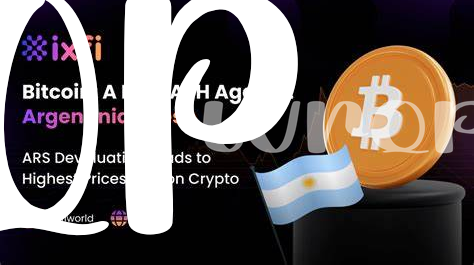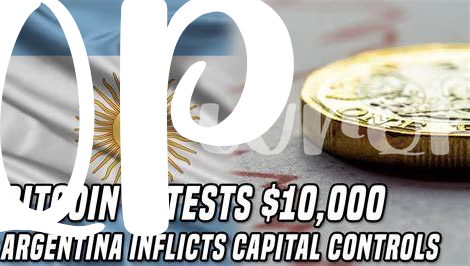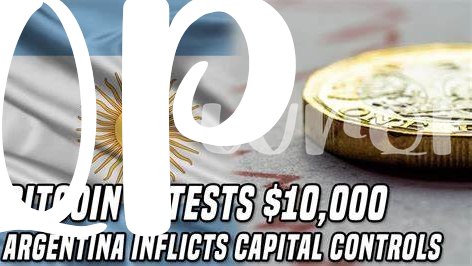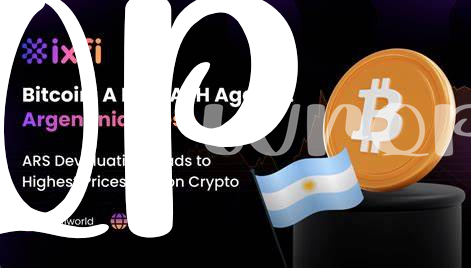Introduction to Foreign Exchange Controls and Bitcoin 💡

In a global landscape shaped by varying economic policies, the intricate dance between Foreign Exchange Controls and Bitcoin emerges as a compelling narrative. As governments seek to regulate the flow of currencies across borders, the innovative potential of decentralized digital currencies like Bitcoin poses both challenges and opportunities. Understanding the fundamental principles behind Foreign Exchange Controls and the decentralized nature of Bitcoin sets the stage for a nuanced exploration of their dynamic relationship. This intersection unveils a tapestry woven with socioeconomic implications, technological advancements, and the quest for financial autonomy in a digital age.
Historical Context of Currency Restrictions in Argentina 📜
Argentina’s economic landscape has been shaped by a tumultuous history of currency restrictions, with periods of hyperinflation and government interventions impacting the financial stability of the nation. From the early 20th century to recent times, Argentina has implemented various policies, including capital controls and limitations on foreign currency transactions, in an attempt to stabilize its economy. These measures have often led to a dual exchange rate system, black market trading, and a constant struggle to preserve the value of the Argentine peso. As the country grapples with economic challenges, understanding the historical context of currency restrictions provides valuable insights into the complex relationship between government regulations and financial innovation.
Impact of Foreign Exchange Controls on Bitcoin Adoption 💰

The strict foreign exchange controls imposed in Argentina have significantly influenced the adoption and utilization of Bitcoin within the country. These restrictions have led to a surge in interest in digital currencies like Bitcoin as a means to bypass traditional financial limitations and access a global financial network. In response to the challenges presented by the foreign exchange controls, Argentinians have turned to Bitcoin as a decentralized alternative, offering greater financial freedom and opportunities for cross-border transactions. This has sparked a growing trend of Bitcoin adoption in Argentina, reshaping the financial landscape and providing a new avenue for individuals to navigate economic uncertainties.
Challenges Faced by Argentinians Navigating Economic Policies 💸

Navigating the complex landscape of economic policies in Argentina poses significant challenges for its citizens. The ever-changing regulations and restrictions create obstacles for individuals seeking financial stability and growth opportunities. From limitations on accessing foreign currencies to uncertainties surrounding local tender, Argentinians must constantly adapt to the evolving economic environment, impacting their financial decisions and planning for the future.
Amidst these challenges, exploring alternative financial avenues like Bitcoin emerges as a potential solution for individuals looking to circumvent traditional restrictions and safeguard their wealth. As Argentinians grapple with the implications of economic policies, the adaptation of innovative technologies such as Bitcoin showcases a shift towards financial autonomy and resilience in the face of regulatory hurdles. For more insights on navigating regulatory environments with cryptocurrencies, consider exploring strategies featured in an article on traveling with Bitcoin: regulations in Yemen.
Future Possibilities for Bitcoin in a Regulated Environment 🌐
In a regulated environment, Bitcoin opens doors to a realm of financial inclusion and innovation. By integrating with existing frameworks, Bitcoin can potentially streamline cross-border transactions, foster economic growth, and provide a safe haven amidst currency fluctuations. As regulations evolve, Bitcoin can be harnessed to enhance financial services, empower individuals to have greater control over their funds, and drive a more transparent financial ecosystem. The adaptability of Bitcoin in a regulated environment not only offers stability but also paves the way for new avenues of economic empowerment and global connectivity.
Conclusion: the Interplay between Regulations and Innovation 🔄

In a world where regulations often clash with innovation, the dynamic relationship between foreign exchange controls and the rise of Bitcoin in Argentina showcases the delicate balance between restricting traditional financial practices and embracing the decentralized nature of cryptocurrency. As authorities grapple with evolving technologies and changing financial landscapes, the future trajectory of Bitcoin in a regulated environment remains uncertain yet filled with potential for adaptation and growth. The interplay between regulations designed to control traditional currency flows and the disruptive force of innovative digital currencies like Bitcoin highlights the ongoing dialogue between regulatory frameworks and the evolving needs of a digitally interconnected global economy.
Foreign Exchange Controls Affecting Bitcoin in Angola
